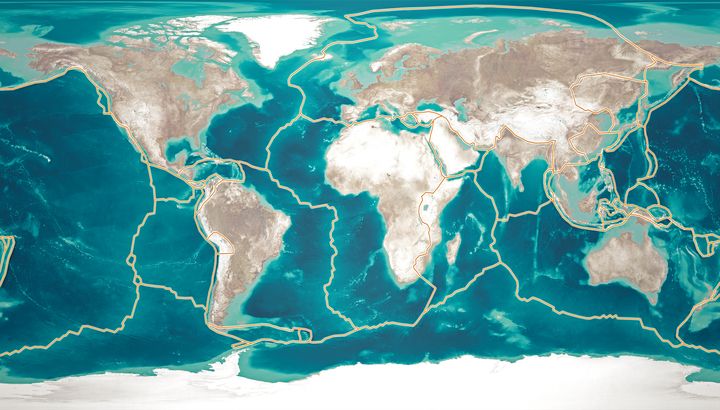
There's something weird going on in the Atlantic Ocean. Off the coast of Portugal, a tectonic plate may be peeling apart, with the top layer separating from the bottom, a scientist has proposed.
João Duarte, a researcher at the University of Lisbon, Portugal, presented his findings at the European Geosciences Union meeting in April. His work, which is not yet published and has not been reviewed by other scientists, suggested that the strange goings-on beneath the Atlantic may be the result of the formation of an entirely new subduction zone that would cause Europe to edge toward Canada, National Geographic reports.
Over recent centuries, two catastrophic earthquakes have struck off the coast of Portugal. What could have caused these events remained something of a mystery—the region they apparently came from is basically a submerged version of the Great Plains; a flat, featureless expanse with no active tectonic faults that could cause the land to move.
Duarte has been investigating the seismic history of Lisbon for decades. Previously, scientists had proposed that the bottom of the tectonic plate that Portugal sits on is peeling away from the top. Almost a decade ago, researchers were studying the region using seismic waves when they found a dense structure beneath the crust. Further research revealed that tiny earthquakes were occurring at this mass over an area stretching 150 miles.
Taking the peeling idea further, Duarte and colleagues created a numerical model that considered the features observed and fracture zones. Computer simulations appeared to back up the idea of a peeling tectonic plate. "This was mostly the work of connecting the dots," he told the magazine.
Should the findings be confirmed, this would be the first time an ocean plate has ever been observed doing this. According to National Geographic, this could be an early stage of the shrinking of the Atlantic Ocean, with Europe moving toward North America.
The tectonic plates are constantly moving. At subduction zones, one plate sinks beneath another. In other areas, the plates are moving apart. Over the history of planet Earth, this movement has led to different configurations of the planet's land masses, including the supercontinents of Pangea and Gondwana. Subduction zones are the main feature driving the movement of Earth's tectonic plates—but how they form is unclear.
Duarte says the tectonic peeling he believes is taking place off the coast of Portugal could lead to the formation of a new subduction zone. The researchers are now writing up their findings ready to be submitted for publication.
Not everyone is convinced, however. Fabio Crameri, a researcher with Norway's University of Oslo, told National Geographic that while the research is "interesting," the models used will need further testing, which will be difficult when working on geological timescales. "Most of what we know so far is that new subduction tends to stay in the places where we already have ongoing subduction," he said. "But that doesn't mean it won't happen."
Uncommon Knowledge
Newsweek is committed to challenging conventional wisdom and finding connections in the search for common ground.
Newsweek is committed to challenging conventional wisdom and finding connections in the search for common ground.
About the writer
Hannah Osborne is Nesweek's Science Editor, based in London, UK. Hannah joined Newsweek in 2017 from IBTimes UK. She is ... Read more
To read how Newsweek uses AI as a newsroom tool, Click here.








